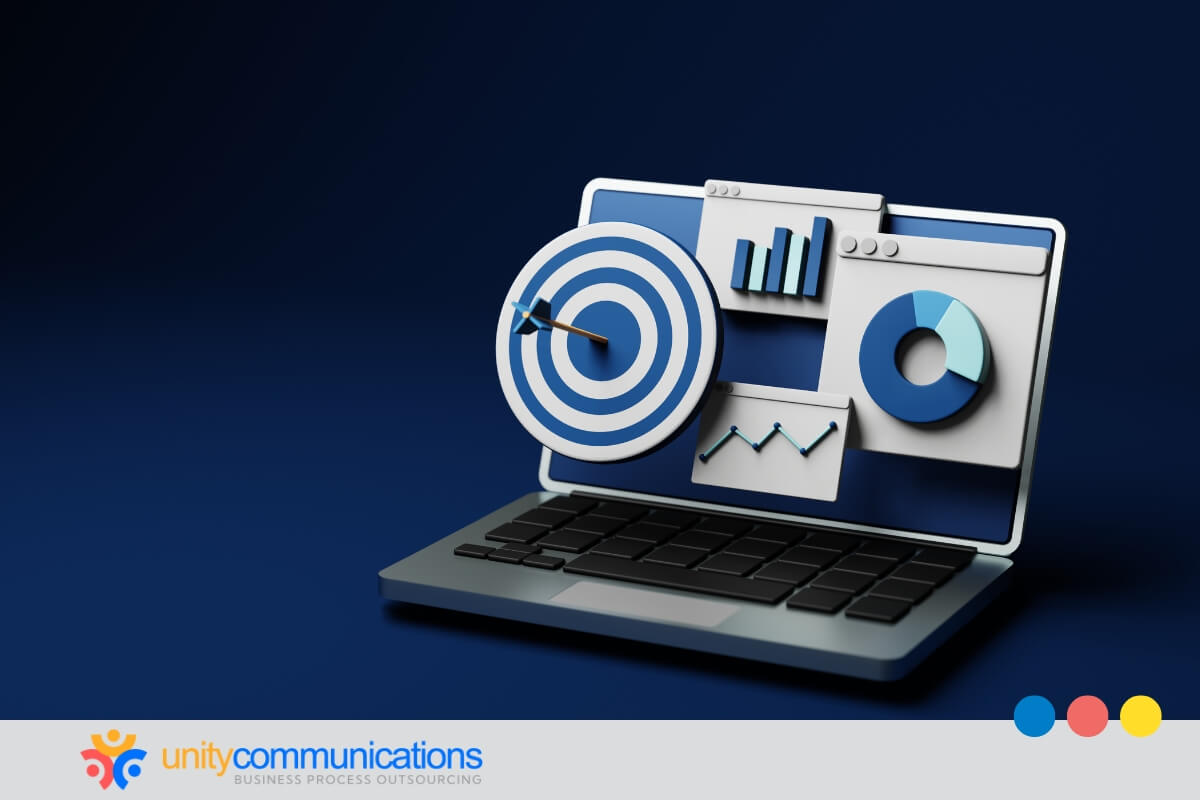Table of Contents
Retailers today must contend with high operating expenses, a saturated market, and multichannel customer purchases. Business process outsourcing (BPO) providers with analytics services can save the day.
BPO retail analytics services utilize tried-and-tested processes to minimize losses, leverage resources more effectively, and mitigate risks with strategic objectives. BPO companies also provide retailers with access to advanced technologies, analytics platforms, domain expertise, processes, and business partnerships.
Continue reading this article to learn more about the role of BPO in retail analytics, the ways companies can leverage the strategy, and the myths and truths about outsourced analytics.
The Importance of BPO in Retail Analytics

Due to digital media and technological developments, customers today are more intelligent. They also demand more from the retail industry. Almost 73% of customers prefer shopping using multiple channels, and 67% expect retailers to allow them to order online and pick up the item in the store.
As the retail industry grows exponentially, companies must prioritize customer retention by improving core aspects such as customer satisfaction and loyalty. These are key elements to unlocking long-term business success.
Retailers must also concentrate on retaining the most profitable buyers. Hence, they must proactively leverage tools such as predictive analytics to understand customers better and accurately anticipate their demands. Doing so helps create a stronger relationship with loyal customers.
BPO can assist in the following retail analytics tasks:
- Performing customer analytics. Its goal is to give a single view of customers across various channels and learn their behavior and thought processes. This task helps improve satisfaction by designing better customer experiences. Its solutions include response analysis, loyalty analysis, churn analytics, and recommendation engine.
- Assessing operations. This function tells you which products customers are most interested in, thus enabling the store operations team to manage product supply and minimize shrinkage. It also optimizes current labor, improves store inventory, rationalizes item assortment, and cost-effectively refines in-store customer service.
- Analyzing and measuring profitability. The BPO organization helps you identify the items that customers prefer to buy based on behavioral insights. This information helps enhance your store’s overall profitability by determining which products are more likely to sell, reducing expenses with data-driven investments.
- Examining competitors. Learning your competitors’ retail strategies is essential. BPO teams process relevant customer data to identify the most effective approach to take when launching a product or service.
- Sorting product categories. Success in retail requires organizing your products into proper categories. Doing so aids in identifying the appropriate price for each product type. BPO firms use product assortment selection tools to improve product display optimization and product clustering.
- Optimizing pricing, merchandising, and promotion strategies. Outsourcing helps you optimize your product assortment and purchase plan, monitor the performance of new products, improve price realization, optimize markdowns, understand competitive pricing, rearrange space allocation, and maximize product availability.
- Studying supply chain operations and forecasting demand. BPO providers use predictive analytics models to better forecast customer demands. With retail and customer data and supply chain visibility, you can plan your inventory accordingly and make accurate decisions regarding vendors and shipping strategies.
How Retailers Use Outsourced Analytics to Identify Profitable Customers
A handful of high-value customers can generate the most revenue for your store. BPO comes into play in retail analytics by helping you determine which customers are the most profitable.
Retail analytics is a crucial yet complicated domain that generates vital insights about your customers. It enables you to develop strategies to attract and retain customers. The same strategies help boost sales, drive growth, and unlock a competitive edge over your rivals in the industry.
However, only a few companies have the internal capacity to manage activities such as sales, customer, supply chain, profitability, and operational analytics.
It is best to outsource retail analytics to a trusted service provider to reduce costs and increase productivity. The data analytics outsourcing market will reach $60,348 million by 2028. Here is how you can leverage this strategy:
- Prepare data. You can share the data with your provider, and it will verify information for accuracy before processing. It will also collect, clean, and validate data to be used in the analysis.
- Recognize patterns. You must understand the patterns derived from your collected raw data to make essential business decisions. Your partner helps design data models to unravel hidden patterns.
- Segment the data into groups. You can ask your third-party team to categorize your data into multiple segments, such as customer, product, and competitor segments.
- Analyze buyers. The external team examines your buyers’ behavior using key indicators pervasive in the retail industry. This analysis helps identify the proper strategy for reaching out to your shoppers.
- Examine trends. Your marketing and customer care teams must remain aware of industry trends. Your BPO partner can provide you with customer intelligence by examining key trends so you can easily decide your next move.
Retail Analytics Outsourcing Myths and What You Can Do About Them

Now that you know what BPO’s role is in retail analytics, let us discuss common outsourcing myths and how you can address them.
A lack of analysts and expertise to build an in-house team pushes organizations toward outsourcing. However, deciding to outsource is not easy. Misguided fears about outsourced retail analytics make the choice much harder.
Here are some common myths to help you understand the risks and opportunities of third-party retail analytics.
Outsourcing Is Only Ideal for Low-level Analytics
Bigger companies are often the first to outsource since hiring a skilled professional to handle low-level analytics wastes resources. Therefore, larger enterprises outsource low-end work. If the results are satisfactory, they may outsource more complex ones.
The myth that outsourcing is only for low-level retail analytics stems from such practices. However, the norm changes as more small and medium-sized companies outsource. These companies do not have the resources to create an in-house team, and outsourcing can save them up to 70% of labor costs.
Action: Partner with a firm with the appropriate skill sets and analytics team size to fill gaps for low-level retail and high-level industry-specific analytics.
Third-party Providers Lack Domain Expertise
Large businesses’ staffing practices are to blame for this misconception. Enterprises recently engaged BPO providers to fill capacity gaps for low-level roles. They mostly hired entry-level staff with little to no domain expertise.
However, the rising demand for outsourcing has increased specialization. Nowadays, some BPO firms focus on servicing one industry or group. They employ analysts for both low-level and high-level tasks.
Action: Pick a BPO team that has strong knowledge of domain operations. The vendor you choose must be able to detect opportunities and threats and offer actionable insights unique to your specific needs and goals.
BPO Companies Fail to Offer Innovation
Another common myth about BPO in retail analytics is that it cannot deliver tangible results and innovation. There may have been some basis for this idea years ago when BPO companies were mere body shops for entry-level analysts producing essential insights.
However, reputable providers today work on complex models that come up with intelligible business-critical insights that serve as the building blocks for innovation.
Action: If you want to enable company innovation using retail analytics, avoid settling for the low-level services offered. Instead, choose specialized firms with relevant industry experience.
External Vendors Compromise Data Security
In actuality, outsourced retail analytics ensure more robust security. Service providers invest heavily in the best security protocols to handle data for various clients. Some may even claim data is safer with an external provider than in a client’s facility.
BPO companies may implement the following measures to protect data:
- Deploy surveillance equipment
- Implement strong access management control and firewalls
- Prohibit removable media to avoid unauthorized access
- Monitor staff’s online activity
- Draft strong non-disclosure agreements (NDA) with strict fines
- Utilize secure communication channels
Action: Before finalizing an outsourcing partnership, check what security measures are implemented to safeguard your confidential data. Ask how service providers ensure data privacy.
Be sure to check whether the firm meets regulatory compliance applicable to your sector. After verifying your potential firm’s capabilities, have both parties sign an agreement that outlines all the data privacy arrangements.
Third-party Retail Analytics Risks Intellectual Property Rights (IPR)
Lastly, a common myth about BPO in retail analytics is that it poses risks to IPR. However, this is not always the case if the BPO firm signs an agreement that protects both parties’ interests.
Action: If you are hiring a third-party firm for strategic retail insights, establish clear guidelines and measures on how they will protect, access, use, and manage IPRs. The details should also state what happens to IP should there be a merger or acquisition of the BPO vendor. The final agreement must benefit both you and the service provider.
Benefits of Outsourced Retail Analytics
Data collection and analysis are important to the success of any industry, and retailing is not an exception. Retail is highly competitive, as new trends emerge every day.
Here are the benefits of BPO in retail analytics:
- Clear metrics and real-time analysis regarding retail statistics and trends
- Significant time and cost savings
- Higher competitiveness against larger businesses
- Enhanced data privacy
- Flexible and scalable operations to handle increased demand
- Better focus on core business
The Bottom Line

Retail companies might need more capability and experience to efficiently manage large amounts of data. Outsourcing retail analytics is an excellent solution for accessing resources and freeing time to concentrate on strategic business problems.
Outsourcing supports decision-making, implements data insights seamlessly, and offers retailers the competitive edge required in today’s marketplace.
Want to learn more about outsourcing? Unity Communications can help. Let’s connect to discover more about BPO firms and their role in retail analytics!




